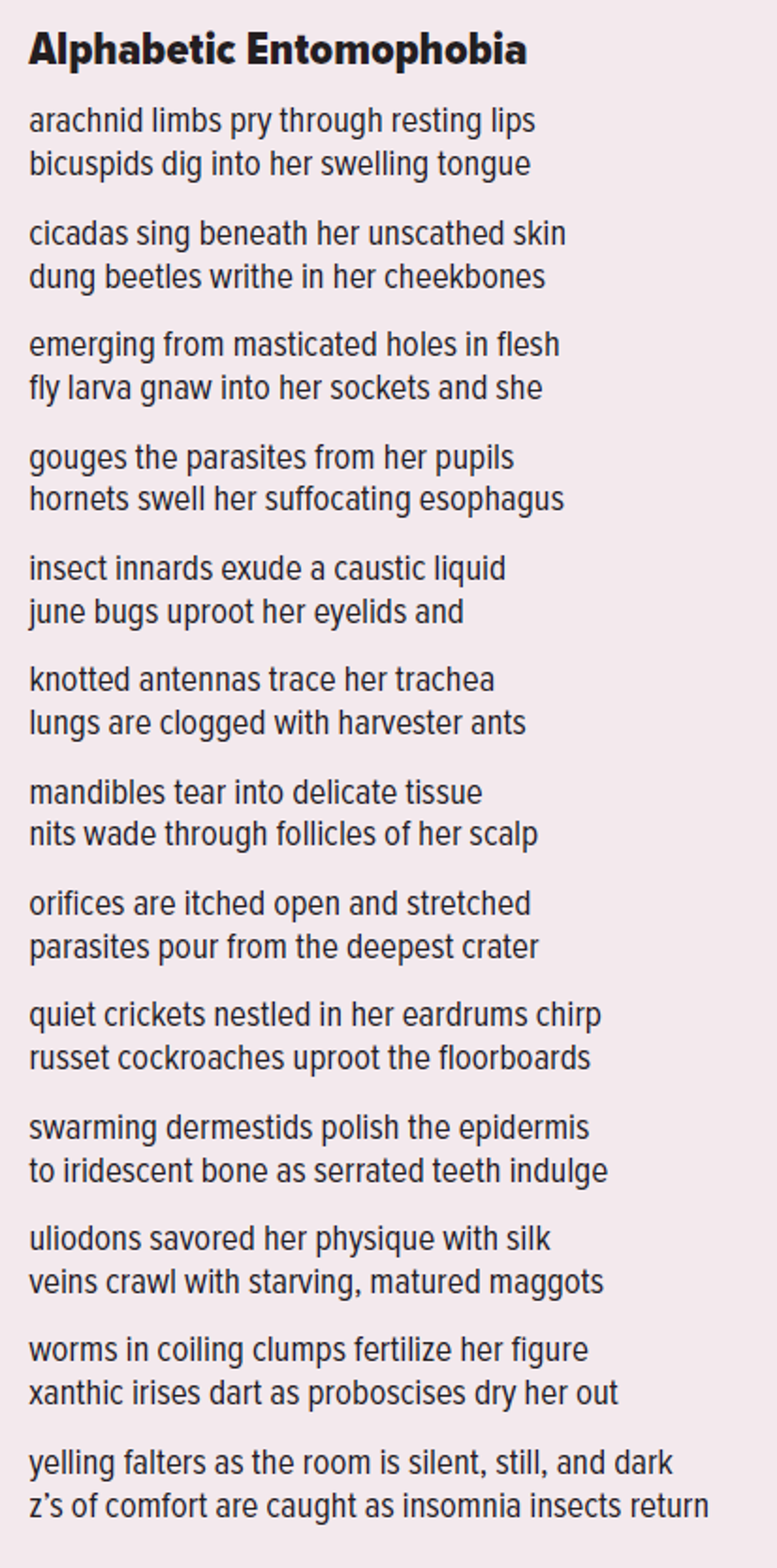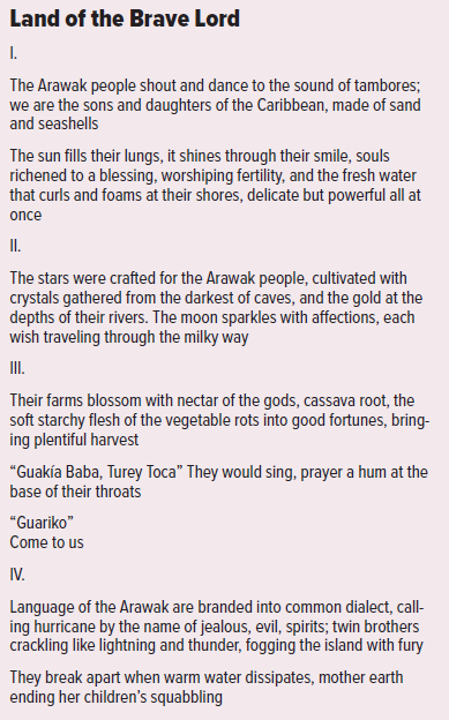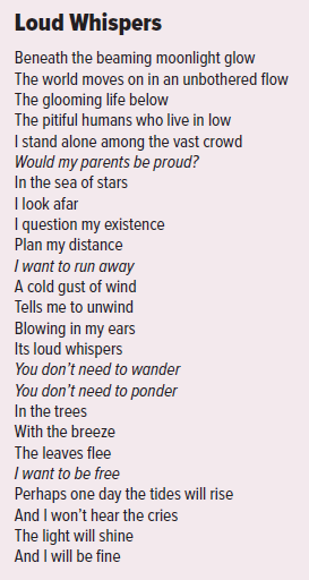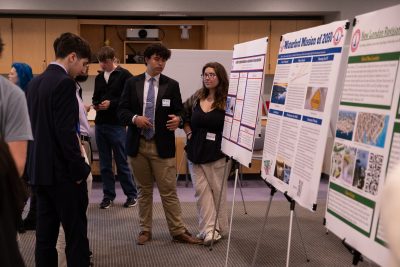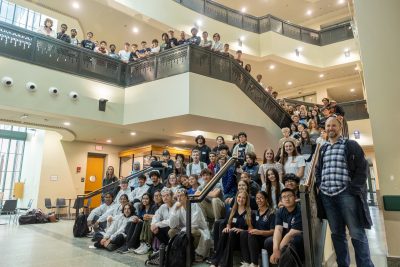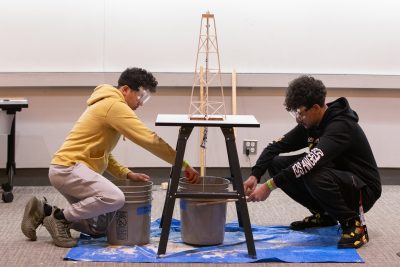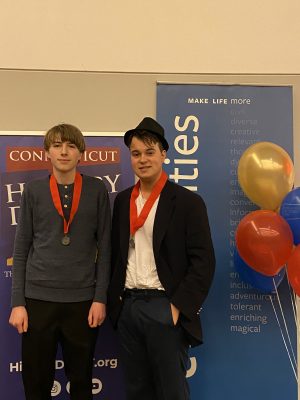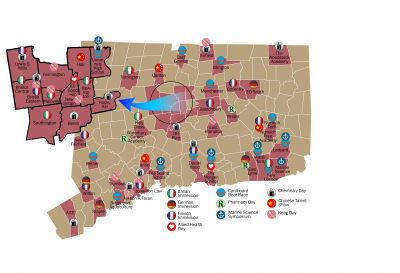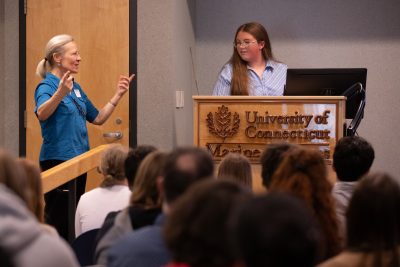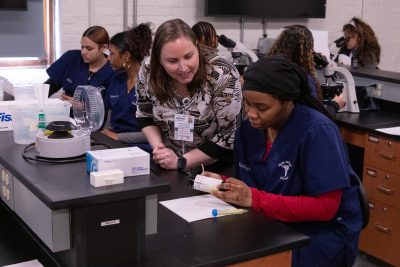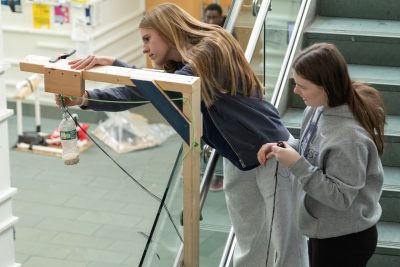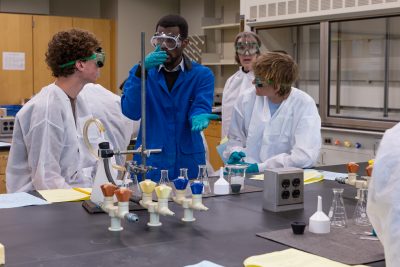By Carissa Rutkauskas
National Teacher Appreciation Day was May 7 and National Teacher Appreciation Week was May 6-10. For UConn ECE, we are extending our teacher appreciation and recognition throughout the summer! After receiving hundreds of instructor nominations from UConn ECE students, we are recognizing our top 15 most frequently nominated UConn ECE Instructors on our social media over the summer months. These exemplary educators also received their choice of a UConn ECE hoodie or a UConn ECE insolated picnic basket. Below is a snapshot of what students had to say about their UConn ECE Instructors.
Mrs. Altimari, Amity Regional High School, SPAN3178 & 3179: Intermediate Spanish Composition & Spanish Conversation: Cultural Topics - Mrs. Altimari is the brightest, friendliest, and warmest ray of sunshine I have ever met. She’s helped me so much with my fluency in Spanish while still making sure the class is stress free, fun, and engaging. She isn’t happy unless you’re happy, and she’s the best teacher I have had.
Mrs. Caruk, Hall High School, BIOL1108: Principles of Biology II - Her ability to plan out her entire year and execute that plan is always done flawlessly. She gives her students plenty of time to prepare for their exams while being available for extra help very often.
Mr. Condosta, Ridgefield High School, ERTH1051: Earth’s Dynamic Environment - He has a personality that could light up any room, enthusiasm and a true love for the subject that is contagious. Every day I walk into his classroom, I walk in smiling, and by the time I leave it’s always too soon.
Mr. Dempsey, St. Joseph High School, HIST1502: United States History Since 1877 - Mr. Dempsey is the best!! Such a dedicated teacher who puts a lot of effort into presenting slides, grading research papers, exams and projects while having the best jokes and sarcasm!!!
Mr. Fagan, Rocky Hill High School, PHYS1201Q: General Physics I - I am able to understand even the most complex topics because Mr. Fagan breaks it down in a way that makes sense logically. He is very encouraging and believes that everyone is capable of doing well!!
Ms. Field, South Windsor High School, MARN1003E: Introduction to Oceanography with Laboratory; NRE1000E: Environmental Science - Not only has she given us inspiration to lead our lives both inside and outside of the classroom, she is able to give us critical constructive criticism that improves both our writing and abilities to creatively think of different solutions for problems that we face in class.
Dr. Harvey, Wilton High School, ENGL1007: Seminar and Studio in Academic Writing and Multimodal Composition - Dr. Harvey makes UConn English one of the most enjoyable classes I have ever taken. I look forward to coming to class every day because although the course is challenging, she always makes sure that her students are enjoying learning.
Mr. Mizak, Harvard H. Ellis Technical High School, ECON1000: Essentials of Economics - As a student who struggles to keep up, in a class as high octane as his is, I find Mr. Mizak to be an instructor who knows the value of hard work and perseverance, an instructor that can instill a good work ethic through meaningful lessons and hard objectives. Through class discussion and meaningful dialogue in a classroom that promotes a difference in opinion and an equal work environment, Mr. Mizak is hands down the best teacher I’ve had in years.
Mrs. Niles, Lyman Hall High School, HDFS1070: Individual & Family Development - Ms. Niles is very kind and cares about her students. She creates fun lessons that are engaging for every student to help us learn the topic at hand.
Mrs. Norige, Torrington High School, BIOL1107 & 1108: Principles of Biology I & II; SPSS 3230: Biotechnology- Science, Application, Impact, Perception - I am so grateful to have a teacher that cares for her students education as much as Mrs. Norige. She not only imparts knowledge but also nurtures a love of learning, instills confidence in her students, and prepares them for success both academically and personally.
Ms. Schager, Staples High School, HRTS1007: Introduction to Human Rights - The class feels incredibly personal and uplifting while also being a rightful challenge. The amount of writing and research I’ve had to do is almost unparalleled as of recently, and I love doing the work so much.
Ms. Turcotte, Jonathan Law High School, CHEM1128Q: General Chemistry II - She is really passionate about what she does and she shares/spreads that energy to us. She also makes our class really fun and feel like a family.
Mrs. Walston, The Morgan School, PHYS1201Q: General Physics I - She always teaches with so much energy and enthusiasm that makes the whole class excited and engaged to learn.
Mr. Wilson, East Haven High School, POLS1602: Introduction to American Politics - Mr. Wilson is an amazing teacher and friend to all, making our learning experience not only fun, but also engaging. His use of humor and engagement with the class is unlike any other history teacher I’ve had, and it’s clear he loves his job.
Mr. Wisniewski, Berlin High School, BIOL1107: Principles of Biology I - Mr. Wisniewski always finds ways to connect with his classes in a more casual/personal way than any other teacher I’ve seen, and he encourages his students to personalize his room a bit, make it a bit more homier for everyone. He also gives the best concise notes I’ve ever taken for a course of this difficulty, and I’m really glad that I had the privilege of being a student of his this year!
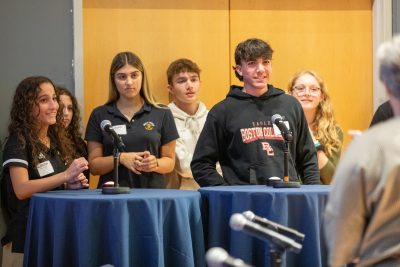 anticipated 3rd annual Italian Immersion Day & Quiz Bowl. The event, which took place at UConn’s Storrs campus in the Student Union Theatre, set a record for participation. Over 100 students from six high schools across Connecticut came together for a day of competitive fun, language immersion, and cultural celebration.
anticipated 3rd annual Italian Immersion Day & Quiz Bowl. The event, which took place at UConn’s Storrs campus in the Student Union Theatre, set a record for participation. Over 100 students from six high schools across Connecticut came together for a day of competitive fun, language immersion, and cultural celebration.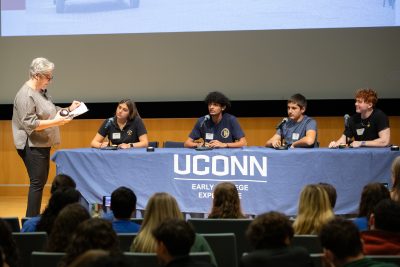
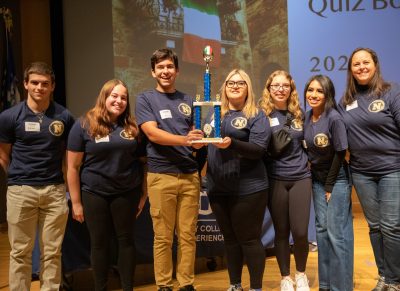 passion for the language.
passion for the language.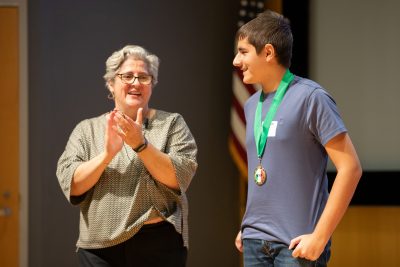
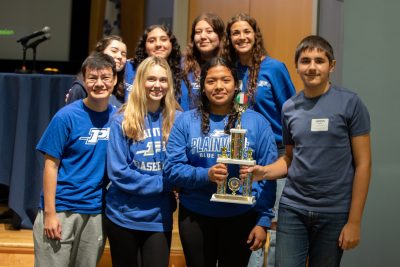
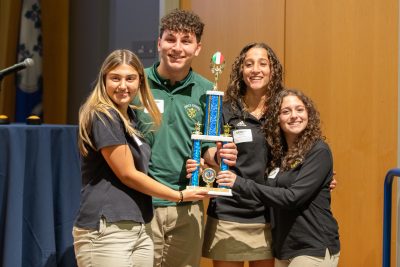
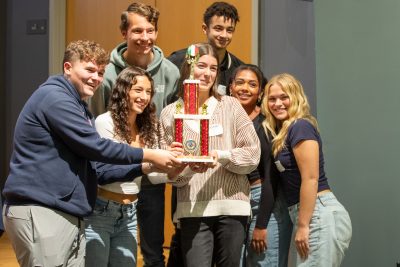
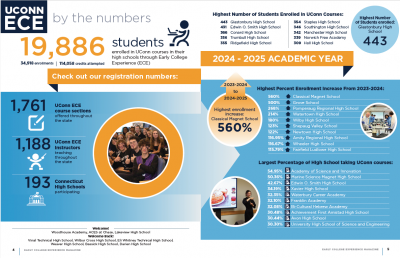



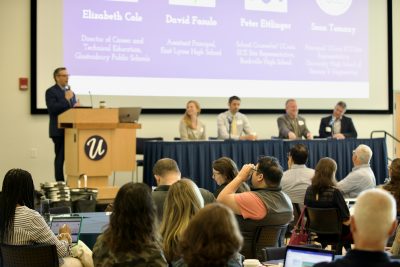 kicked off with a plenary session focusing on Promising Practices at Partner Schools. Representatives from Glastonbury Public Schools, East Lyme High School, Rockville High School and University High School of Science and Engineering discussed ways they are expanding their concurrent and dual enrollment opportunities at their schools. They shared an approach that focused on creating diverse course offerings to meet the unique needs of their high school populations. Site Representatives attended breakout sessions which focused on high school specific program data, expanding access to course offerings, registration 101, a Q&A with a panel of former UConn ECE students, and information from UConn’s Center for Students with Disabilities. The conference ended with a barbecue lunch on the Student Union Terrace for attendees to enjoy a beautiful, sunny day on the Storrs campus. We look forward to having everyone back on the Storrs campus next year.
kicked off with a plenary session focusing on Promising Practices at Partner Schools. Representatives from Glastonbury Public Schools, East Lyme High School, Rockville High School and University High School of Science and Engineering discussed ways they are expanding their concurrent and dual enrollment opportunities at their schools. They shared an approach that focused on creating diverse course offerings to meet the unique needs of their high school populations. Site Representatives attended breakout sessions which focused on high school specific program data, expanding access to course offerings, registration 101, a Q&A with a panel of former UConn ECE students, and information from UConn’s Center for Students with Disabilities. The conference ended with a barbecue lunch on the Student Union Terrace for attendees to enjoy a beautiful, sunny day on the Storrs campus. We look forward to having everyone back on the Storrs campus next year.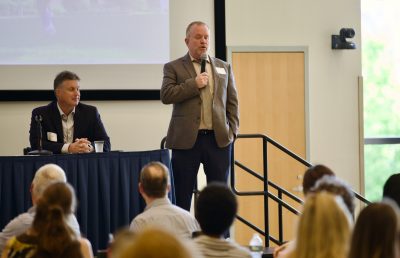
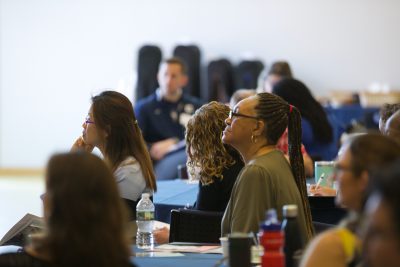
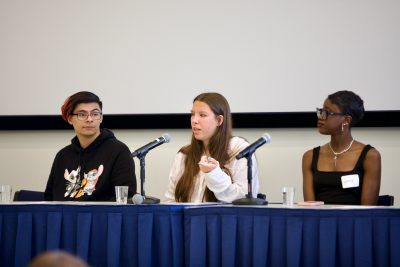









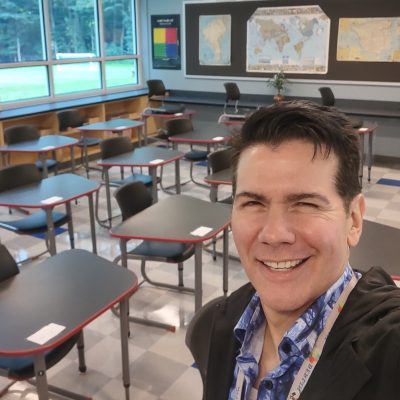 Conversation: Cultural Topics, since 2012. His unique gift to ECE classrooms was bringing alive the language, culture, and history through his storytelling based on his extensive travel experiences in the Hispanic and Portuguese worlds, and his Chilean heritage. In his retirement, Mr. Lewis will move on to his third career teaching Buddhist philosophy and practice, and eventually living part time in the White Mountains and in Chile.
Conversation: Cultural Topics, since 2012. His unique gift to ECE classrooms was bringing alive the language, culture, and history through his storytelling based on his extensive travel experiences in the Hispanic and Portuguese worlds, and his Chilean heritage. In his retirement, Mr. Lewis will move on to his third career teaching Buddhist philosophy and practice, and eventually living part time in the White Mountains and in Chile. International Studies Association Annual Conference in San Francisco, CA in April, where he presented a research paper on Nationalism and identities in South Asia, an article version of his dissertation. He also co-presented on forming national identities, mass culture, and land rights. Dr. Rafiq was able to attend several sessions, including foreign policies, using role theory and Arab Spring 2.0, and civil war research.
International Studies Association Annual Conference in San Francisco, CA in April, where he presented a research paper on Nationalism and identities in South Asia, an article version of his dissertation. He also co-presented on forming national identities, mass culture, and land rights. Dr. Rafiq was able to attend several sessions, including foreign policies, using role theory and Arab Spring 2.0, and civil war research.

